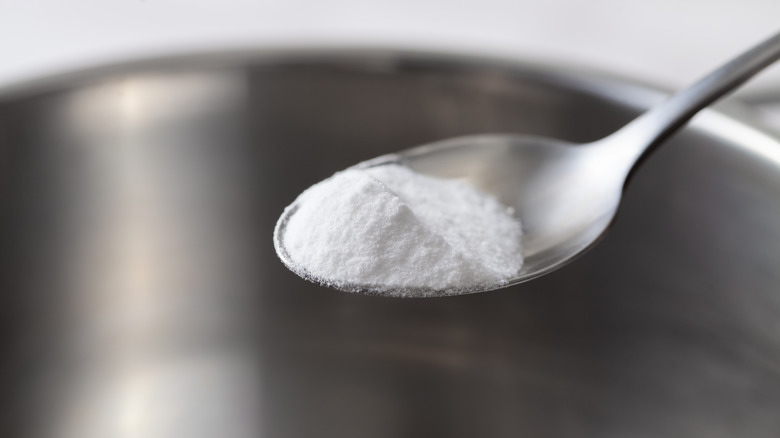You Should Be Eating At Least This Much Salt Every Day
Health organizations warn that most people consume too much salt. We've all heard that excess sodium can raise blood pressure and contribute to heart disease. Moreover, it may affect the brain, kidneys, and blood vessels, leading to poor health. For example, research published in the Journal of the American College of Cardiology suggests that eating too much sodium can cause stiffening of the arteries, impaired endothelial function, and cardiovascular problems.
What you may not know is that your body needs sodium to function properly, explains Harvard T.H. Chan School of Public Health. Table salt, or sodium chloride, plays a key role in muscle and nerve function while maintaining your fluid and electrolyte balance. This nutrient also enhances food flavor, prevents bacterial growth, and masks bitterness, among other properties.
As the researchers note, we need no more than 500 milligrams of sodium per day. Yet, the average American consumes about 3,400 milligrams daily, reports Harvard T.H. Chan School of Public Health. The problem is that there is no consensus on how much salt we should be eating. Ask three different experts about it, and you will get three different answers.
How much salt should you have?
The American Heart Association recommends about 1,500 milligrams of sodium per day — that's less than a teaspoon of salt. This amount appears to be safe for most adults, including those with high blood pressure, notes Harvard Health Publishing. People aged 51 to 70 years should aim for 1,300 milligrams of sodium per day, while those over 70 years old should have no more than 1,200 milligrams.
But not everyone agrees with these recommendations. Dr. Eric Berg, DC, states that eating less than a teaspoon of salt per day can actually increase the risk of heart attacks (via YouTube). Instead, he suggests consuming two teaspoons of salt per day, especially if you're on a ketogenic diet. This eating plan is low in carbs and high in fat. After ingestion, carbs are converted to glycogen — and each gram of glycogen is stored with at least 3 grams of water, reports a 2015 study featured in the European Journal of Applied Physiology. Therefore, you can expect to lose water weight while on the keto diet.
Sodium causes your body to hold onto water, which may help prevent dehydration. Considering this aspect, it makes sense to increase your salt intake when cutting down on carbs. However, Dr. Berg points out that his recommendations don't apply to those who tend to retain fluid. So, unless you are on a low-carb diet, it's best to keep your sodium intake in check and stick to 1,500 milligrams per day.


